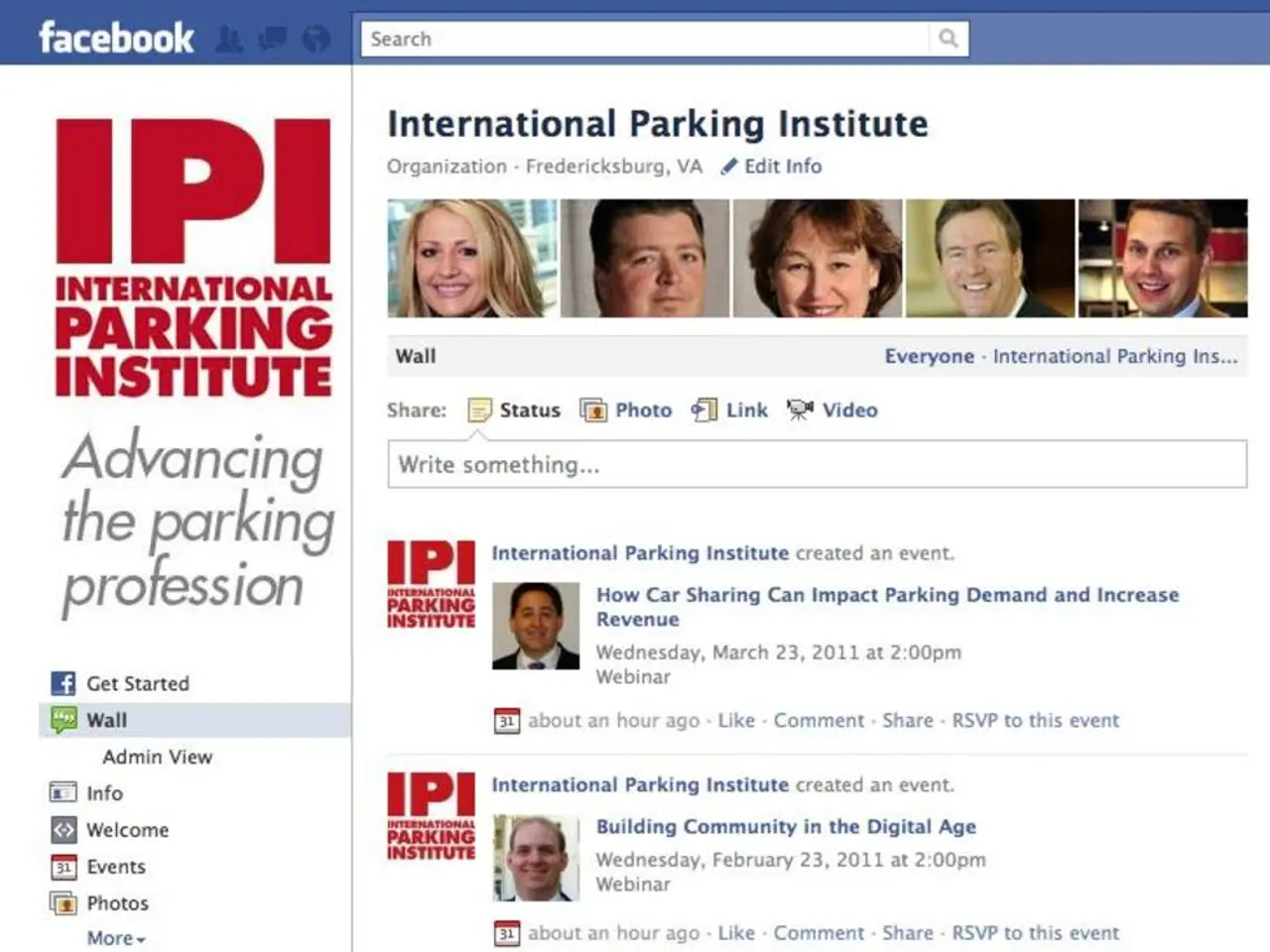Facebook's Crackdown on Duplicate Content: Elimination of 500,000 Spam Accounts
Facebook Cracks Down on Unoriginal Content: A New Era for Creators
In a significant move, Facebook has overhauled its algorithm in the first half of 2025, focusing on originality, relevance, and comprehensive value in content shared on its platform. This change aims to promote creativity and reward genuine storytellers, while penalizing unoriginal content.
The revamped algorithm systematically down-scores duplicate videos or recycled text posts in the News Feed, making them less prominent and clearing prime real estate for first-run content. This shift reflects a broader trend towards AI-driven content understanding, where the algorithm interprets context and intent rather than relying on mechanical SEO tactics.
Specifically, Facebook’s new system evaluates how clearly and deeply content addresses user queries, favoring original and well-structured content over duplicated or vague material. Unoriginal or recycled content may be considered less trustworthy or useful, resulting in reduced reach or engagement.
While the exact enforcement penalties for unoriginal content are not explicitly detailed, by analogy with similar AI algorithm updates, the consequences typically include lower ranking in news feed algorithms, reduced impression share among users, and poor engagement metrics due to perceived lower content quality.
However, transformative uses, reaction videos, commentary overlays, or remixing trends with a unique spin remain welcome on Facebook. Meta's published best practices emphasize producing original videos and imagery, enhancing repurposed content with meaningful edits, crafting high-quality captions, and eschewing third-party watermarks.
Early tests on Facebook include placing a "View Original" link beneath reposted videos, directing viewers to the source. Facebook aims to be a place where original content thrives, and creators are rewarded for their hard work and creativity.
In addition to the algorithm overhaul, Facebook has been actively dismantling accounts and profiles that violate its policies. Between January and June 2025, the platform disabled 500,000 accounts for spammy behavior or fake engagement, and dismantled around 10 million profiles impersonating established creators.
The shift towards original content presents both risk and opportunity for creators. On one hand, building an audience through repurposed clips is no longer tenable, and economic incentives will steer creators towards authentic production. On the other hand, genuine storytellers are likely to find enhanced visibility and stable monetization.
Facebook's Professional Dashboard now provides post-level insights to reveal if a specific piece of content was penalized for originality issues. The Support home screen on Facebook flags any monetization risk, showing if a Page or profile is at risk of losing revenue access due to unoriginal postings.
Accounts that improperly reuse someone else's videos, photos, or text posts repeatedly will lose access to Facebook monetization for a period of time and receive reduced distribution on everything they share. This policy shift elevates the stakes, and Meta emphasizes that unoriginal content takes advantage of another creator's creativity and hard work.
In conclusion, Facebook’s H1 2025 algorithm overhaul emphasizes originality and meaningful relevance, so creators and advertisers must ensure content is novel and adds value to avoid negative consequences. Meta has launched a sweeping algorithm overhaul to redefine Facebook’s platform as a showcase for original voices.
Creators on Facebook must prioritize originality in their content to maintain visibility and engagement, as the revamped algorithm penalizes duplicates and promotes unique, valuable material. The shift towards original content could potentially lead to enhanced monetization opportunities for genuine storytellers, but repetitive reuse of others' work may result in temporary loss of monetization access and reduced distribution. thereby taking advantage of another creator's creativity and effort. As Meta continues to dismantle accounts violating policies, this evolution underscores the importance of business ethics, technology-driven creativity, and social-media best practices in the entertainment industry.




